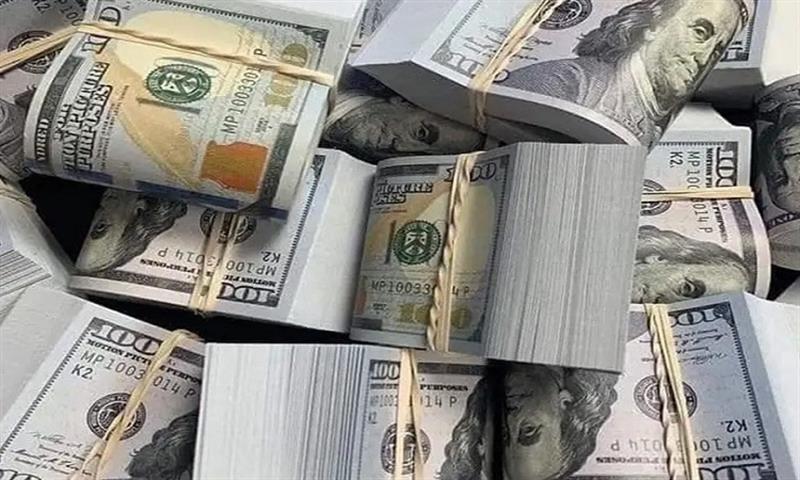International crises: canceling the world’s dependence on the dollar has become a ‘matter of time’
International crises: canceling the world’s dependence on the dollar has become a ‘matter of time’
05/05/2023
 The co-chair of the International Crisis Group, Frank Göstra, warned that eliminating the world’s dependence on the US dollar has become an inevitability, and said it threatens to turn into a national security concern.
The co-chair of the International Crisis Group, Frank Göstra, warned that eliminating the world’s dependence on the US dollar has become an inevitability, and said it threatens to turn into a national security concern.
Gustra said, in a commentary published by the American website Responsible Statecraft, that the idea of the dollar losing its hegemony did not occur to most countries in the developed world, until the United States and its allies decided to freeze the Russian currency reserves, and separate them from the Swift system, in light of Moscow’s attack on Ukraine.
Growing resistance to the US dollar
As this step resulted in growing resistance to the US dollar, according to Gustra, with many countries concluding non-dollar trade agreements, and the return of the BRICS group’s plans to issue its own currency. “Building financial systems depends on trust,” he said. “If those financial systems are weaponised, they will lose the confidence needed to maintain their dominance.”
That is why the central banks began to reduce their dollar reserves, while accumulating more gold, after they saw in the Russian sanctions a story for who is considered. There is no doubt that the value of the dollar matters to the rest of the world, because the majority of sovereign debt is paid in US currency. And Gustra added that managing those debts has become difficult. Given the green currency value rates currently.
At the same time, the appreciation of the US dollar raises commodity prices, forcing developing countries to actually import US inflation. And he added, “De-dollarization efforts will remain in place despite potential American opposition, because most countries in the non-Western world want a trade system that does not make them vulnerable to the risks of weaponization or dominance of the dollar. It is no longer just a possibility, but rather a matter of time.”
However, a sudden decrease in the demand for the US dollar may lead to a rise in domestic inflation, and may threaten the occurrence of hyperinflation. He warned that this could cause a cycle of debt and money printing, which could tear at the American social fabric.
As Gustra said: “It can be said, in short, that the US administration will consider any steps to de-dollarization as matters of national security in the end.”
America should open up to dialogue
To avoid this from happening, the United States must open up any dialogue regarding the creation of a new monetary system. Any new global currency system would likely be backed by gold or other commodities, but Gustra conceded that the United States would likely not like it politically.
“A multipolar monetary system may provide a fairer playing field for poorer countries, and may give the United States and the world economic and political stability in the long run. But the likely results will be somewhat messy, and will imply a decline in Americans’ living standards,” Göstra writes.
At the same time, other commentators dismissed threats of de-dollarization, saying that it would be difficult to emulate or create an alternative to the dollar’s strength.
nrttv.com
